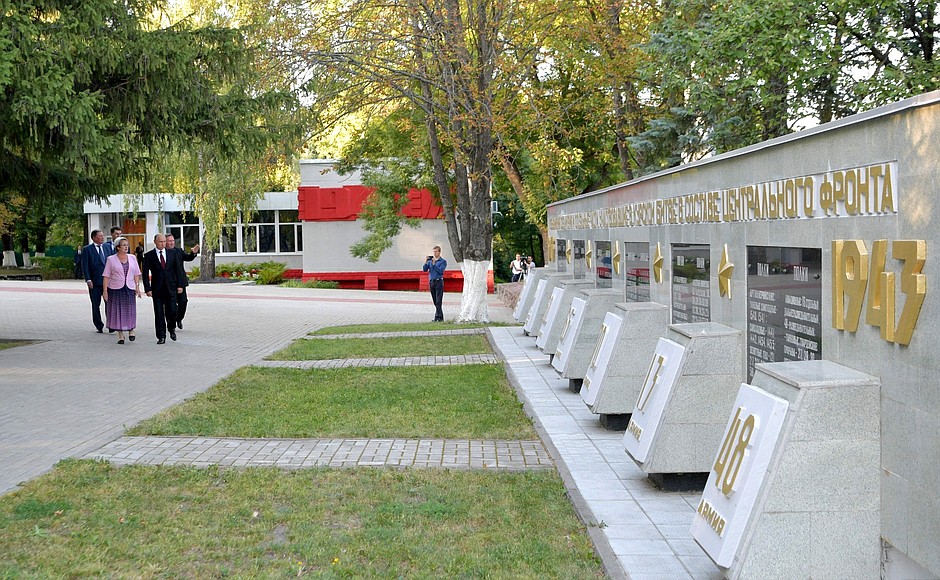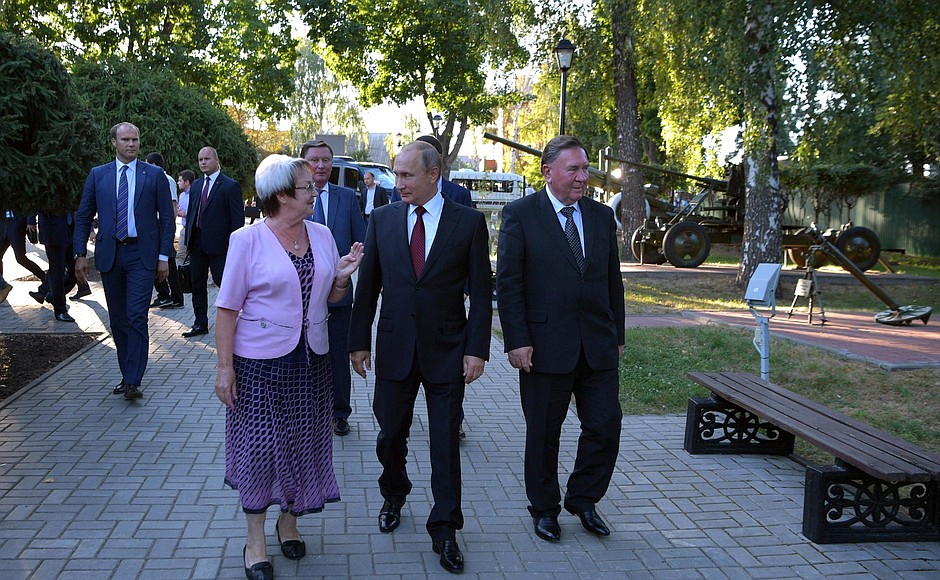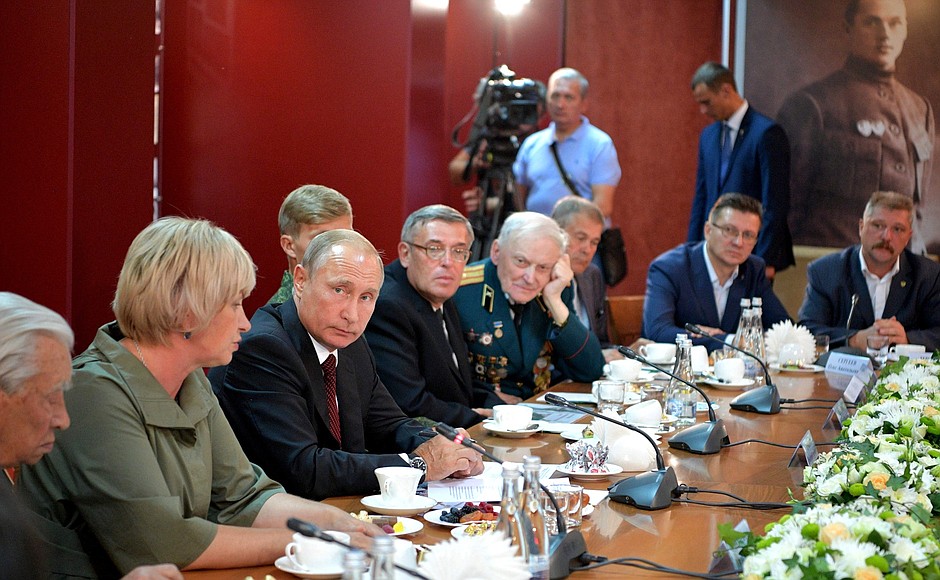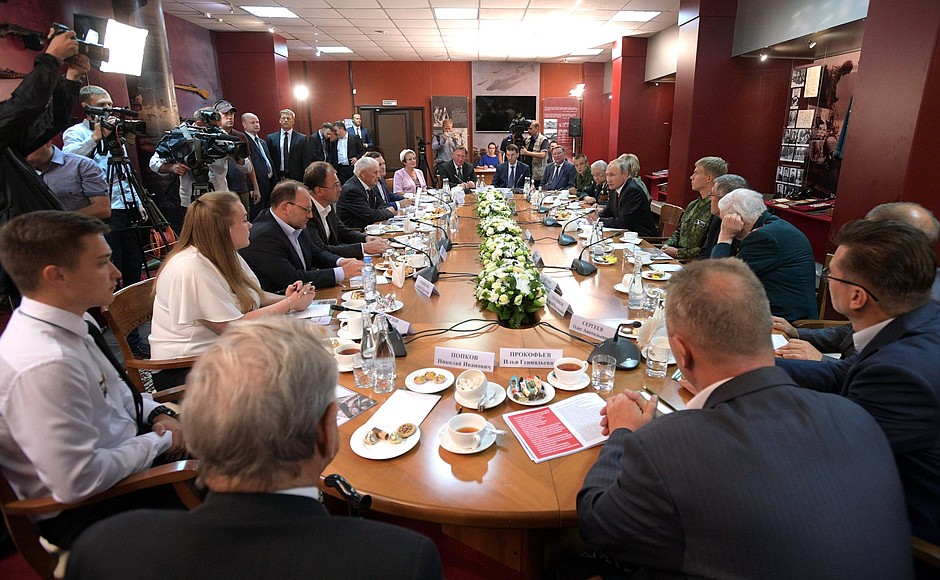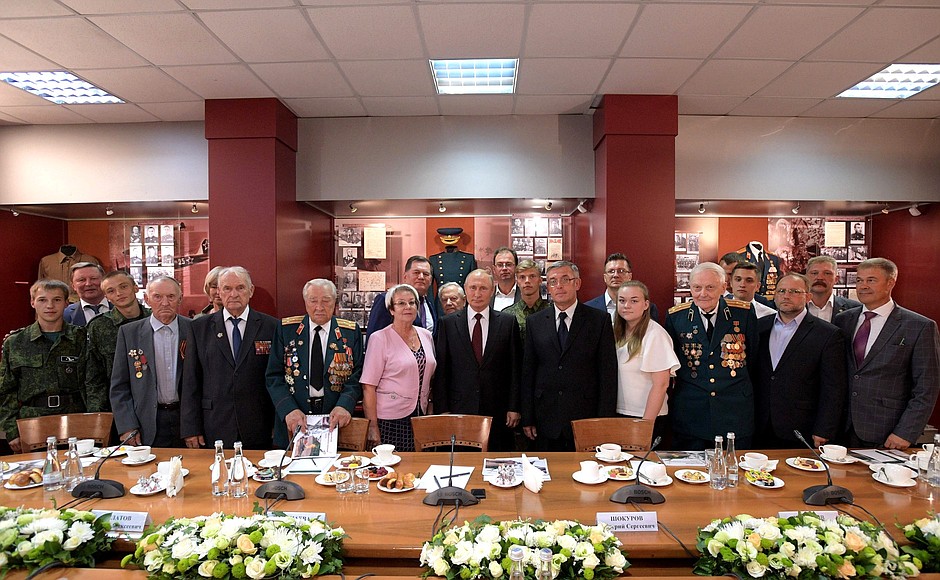During his trip to the Kursk Region, where main events are taking place to celebrate the 75th anniversary of the Soviet Army victory over the Nazi invaders in the Battle of Kursk, Vladimir Putin visited the memorial museum Command Post of the Central Front and met with members of Russia's search movement and Great Patriotic War veterans.
During the tour, the President saw the re-dug military bunker of front commander Konstantin Rokossovsky who commanded the Soviet forces in the Battle of Kursk, and the exhibit of military equipment from that era.
* * *
Opening remarks at a meeting with members of Russia's search movement and Great Patriotic War veterans
President of Russia Vladimir Putin: Good afternoon, friends,
I would like to greet you and congratulate you on this landmark date; 75 years ago today, the Battle of Kursk ended, the battle that, as historians now say, was the final turning point in the Great Patriotic War and in WWII.
I see veterans here. Of course, first, I would like to address you and congratulate you on this event, a major moment in our history and the life of our nation. Without such victories, without this victory, who knows how the Russian nation would have formed and what the destiny of the Russian people, as well as the destiny of other peoples in our big country, would have been. Most probably it would have been sad, if not tragic. But this did not happen thanks to you and your fellow soldiers' heroism, and the heroism of all Soviet people. The Battle of Kursk was won by Red Army soldiers, officers, generals and marshals, as well as local residents who took every effort to help the armed forces defend the Fatherland.
We have many young people here. I know that some are members of various search organisations. As a reminder, this movement originated back in the 1960s in Veliky Novgorod, and that’s understandable: this region saw large, violent and bloody battles, with many victims.
We know that today over 30,000 burial sites have been registered with the Russian Defence Ministry. But unfortunately, so far we know the names of only about half the soldiers who died. This applies to both the burial sites on the territory of the Russian Federation and abroad.
What searchers do is noble and important work. First of all it is aimed at paying tribute to the soldiers who defended the Fatherland, but also at educating today's young people and future generations in their commitment to and love for the Fatherland, which is extremely important for our country's future.
There is a lot to do, I am talking about preserving the memory of the heroes of WWII and the Great Patriotic War. There is much to be done. The searchers who talk about this, find not just remains but also rather large burial sites from regiments and hospitals. Much of this needs corresponding registration and regulations.
The Government is developing a federal programme on this issue. I asked my colleagues to address this, and I know this work is underway. In addition, this preparation work is open to the public, and anyone who wishes to take part in it can do so by making proposals on organising this effort.
There are many other issues that will probably be mentioned today. I would like to once again congratulate you on this remarkable date.
<…>
